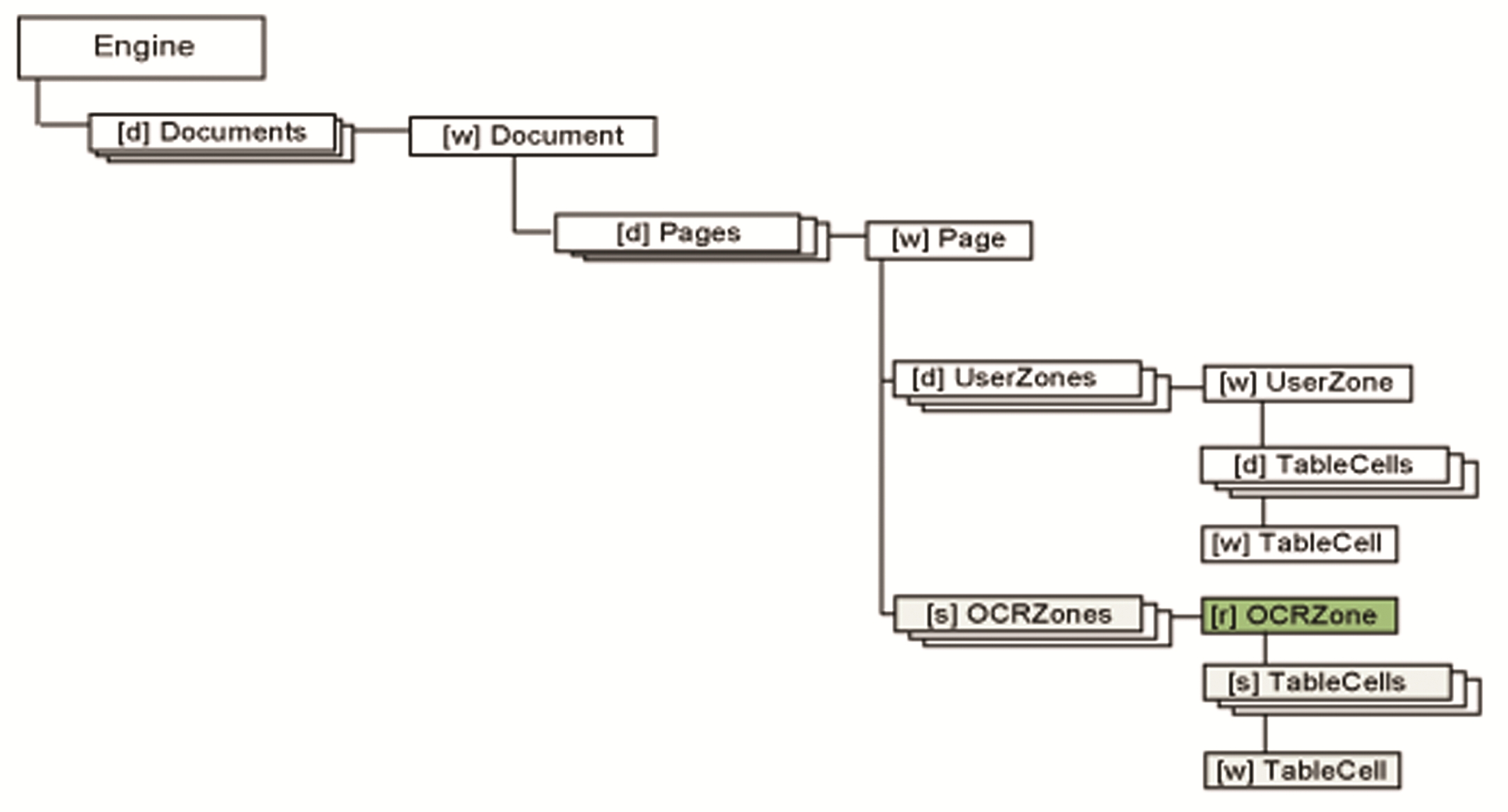OCRZone / OCRZones

The OCRZone object contains information about a specific OCR zone in a page. The OCRZone object provides access to the coordinates of an OCR zone, its content type, and other properties. All coordinates in this object refer to the OCR image.
The OCRZones collection is a sorted set of OCRZone objects. The order of the OCRZone objects are the reading order of the recognized paragraphs.
The reading order takes effect only when it is exported with converters using the Formatted Text formatting level, formerly called Retain Fonts and Paragraphs mode.
